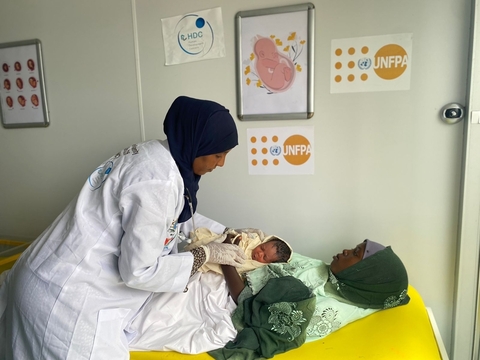You are here
- Home
- Slideshows
-
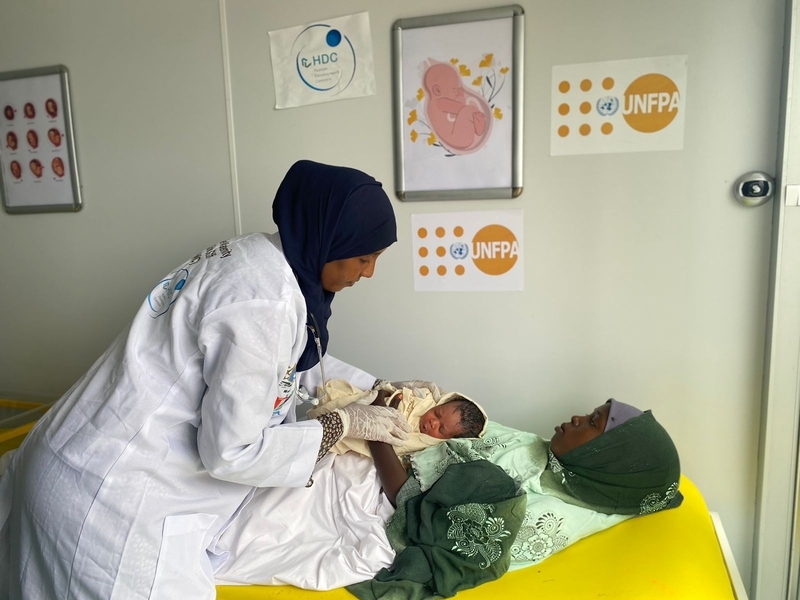
Midwives are the heroes of millions of stories.
As providers of culturally sensitive health care, leaders in their communities and emergency responders in times of crisis, midwives are courageous and indispensable.
When disasters strike, midwives save lives. They are often the first responders for women, representing the most effective way to avoid preventable maternal deaths.
The Arab region faces a shortage of 60,000 midwives by 2030. By closing this gap - and investing in their training, development and support - 300,000 lives could be saved each year.
The world must urgently invest in creating an environment that enables midwives to do their important work, by ensuring quality education, providing resources, and empowering them to act as full partners across health systems.
On the International Day of the Midwife, midwives' stories are testament to their professionalism, compassion and resolve to provide vital, life-saving care, no matter what.
-
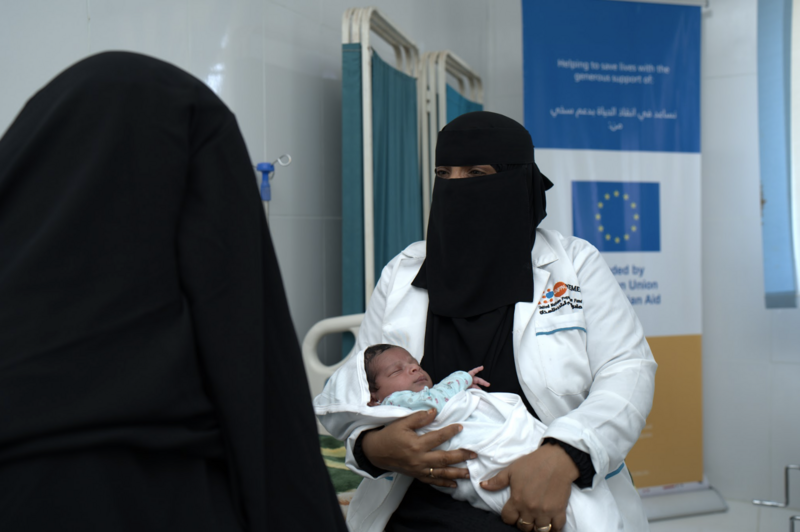
Mona, a midwife from Yemen
“With traditional midwives, many births ended with complications, and sometimes in tragedy,” recalls Mona [50] who was the first-ever trained midwife in the Yemeni region of Hadramawt.
”Healthcare was a world away,” when she started her work more than thirty years ago. “A patient of mine once said, ‘Prayers are our only friends in childbirth, and survival was pure luck.”
For years Mona struggled to provide maternal care in her impoverished region.
“One harrowing memory comes back - a terrible storm. Day and night blurred into one as we trekked over treacherous terrain in the howling wind and rain. Yet the thought of three lives hanging in the balance – a woman with twins – fueled my resolve, and I reached them in time.”
“Today, dozens of trained midwives, empowered by UNFPA, blanket our region. They offer a range of services – maternal healthcare, obstetric care, an ambulance, an operating room, and most importantly, free medicine. After the war and natural disasters it all feels like a dream.”
-
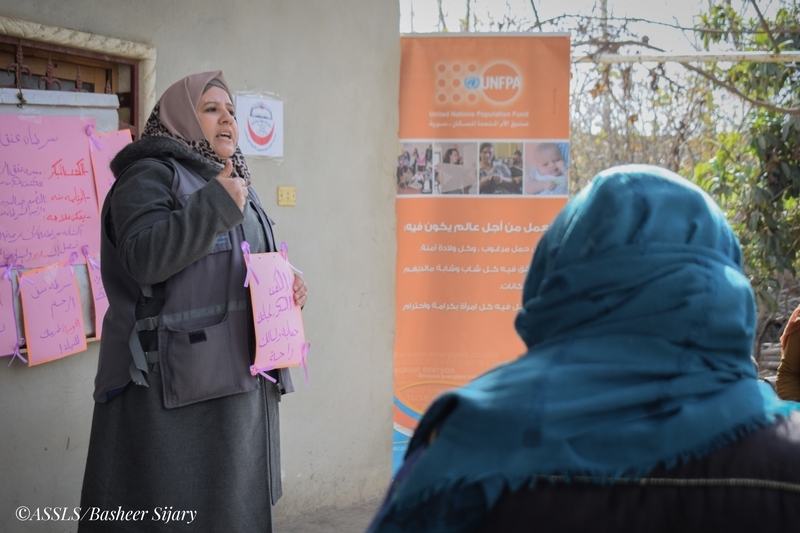
Yusra, a midwife from Syria
“In my 25 years as a midwife, one of the most challenging cases was the high-risk pregnancy of a woman carrying twin fetuses,” says Yusra [47] a midwife in Deir Ezzor, Syria.
“We didn’t have much then, but I kept both of the unborn babies alive.”
Health services are scarce in the war-torn and remote eastern region of Deir Ezzor, but UNFPA-supported mobile teams go the extra mile to reach women and girls regardless.
“I’ve delivered over 200 babies, even for my own sisters,” says Yusra, who now provides crucial health guidance to girls in the area, including on family planning, within a mobile health team.
Separately, a UNFPA-supported Midwifery Network in Deir Ezzor has facilitated around 340 safe births so far in 2024, and over 1200 in 2023.
“The Midwives Network has become a beacon of hope for pregnant women in rural Deir Ezzor. Their commitment to providing clean, and safe births has significantly improved maternal and newborn health in the region,” says Muriel Mafico, UNFPA Representative in Syria.
-

Farhan, a midwife from Somalia
“My journey to becoming a midwife was transformative,” says Farhia, the leading midwife at the Mobile Maternity Clinic in the Guryasamo settlement for displaced people in Bandir, Somalia.
Farhia was trained at the UNFPA-supported Mogadishu School of Midwifery from 2018 to 2020.
“I immersed myself in obstetric and gynecological knowledge, learning the intricacies of normal pregnancy, labour and childbirth, as well as childbirth complications,” Farhia says.
Somalia has one of the highest maternal mortality rates in the world, at around 692 maternal deaths per 100,000 live births. Conflict and climate change-fuelled disasters have compounded the challenges of providing life-saving maternal care and sexual and reproductive care.
For Farhia, her training has proved crucial for her work with internally displaced women.
“My ability to offer counseling and education is just as important here,” she says. “It’s about empowering women with the knowledge to navigate their pregnancies with confidence.”
-
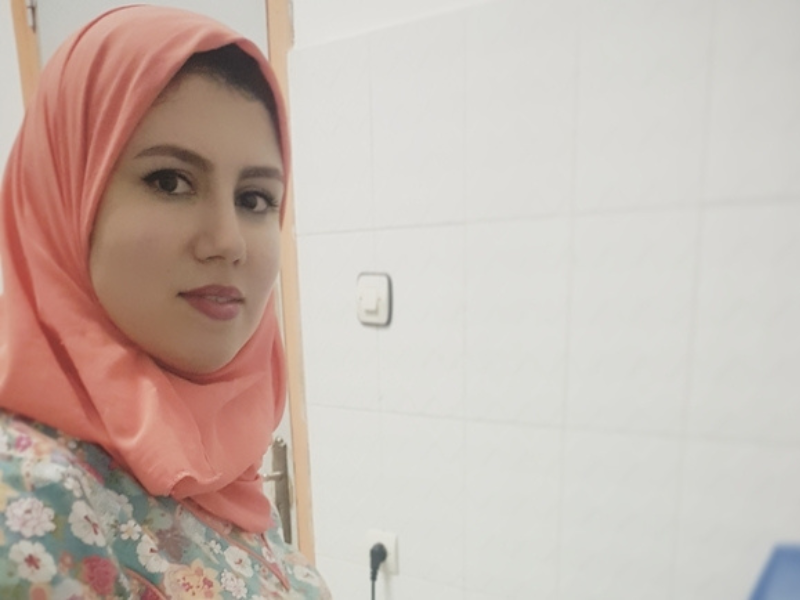
Hajar, a midwife from Morocco
“I don't know by what miracle I could cross that bridge,” says midwife Hajar, who recalls battling to reach a woman in labour in the midst of a powerful flood.
“The roads were cut off. There was no electricity, and there was no way we could move a woman in labour across that little bridge, so I had to reach her to help her deliver at home.”
In remote areas, midwives are often the first and only point of contact with the healthcare system for many women and girls. Disasters make the challenge of reaching them even harder.
Despite huge challenges, Hajar ensured that the birth occurred under the best possible conditions, using a UNFPA delivery kit to ensure the woman and her newborn came out safely.
“We bridge the gap between communities and the healthcare system, ensuring that the needs and perspectives of women and girls are met in planning and delivery,” says midwife Khadija.
-
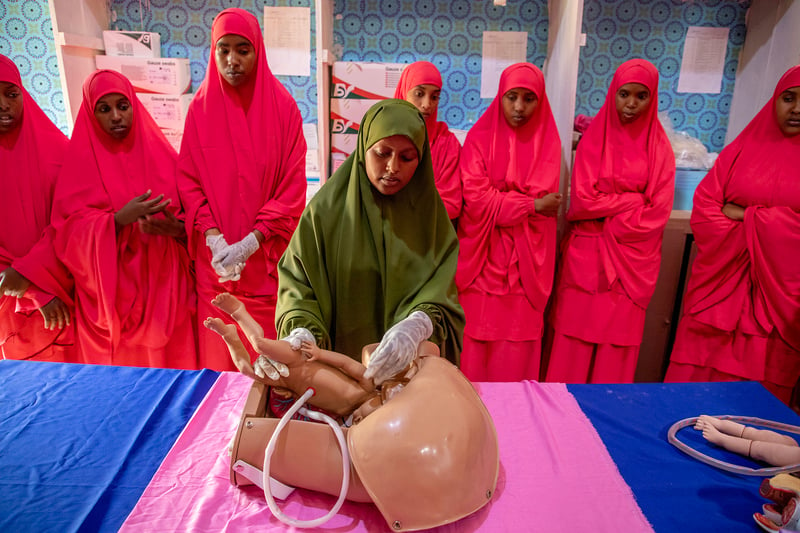
Sofia, a midwife from Somalia
“The graduate midwives are eager to get back to their communities and make an impact. They know the maternal and child health needs are really high,” says Sofia, a midwifery trainer at the UNFPA-supported Baidoa Midwifery and Training Institute in southwestern Somalia.
The climate crisis is compounding extreme weather in Somalia, and with more women and girls being displaced, UNFPA is working to build a cadre of trained midwives to meet their needs.
“Every student must assist in the delivery of at least 50 babies before they graduate. They must also gain experience in newborn care and handling complications like postpartum hemorrhage,” says Qaali, who holds a master’s degree in reproductive health and trains midwifery students.
“We make sure to mix both practical and theoretical lessons in every semester,” adds Sofia.
UNFPA also supports the training of midwifery instructors in Somalia. Working with the Federal Ministry of Health and the Canadian Midwifery Association, UNFPA’s training, guidelines and supervision has helped develop the national midwifery curriculum, leading to improvements in the quality and quantity of midwives in the country.
